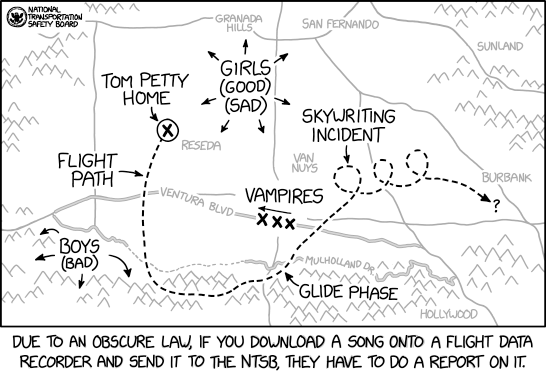[1] 2Reproducible workflows
…with R Markdown, Quarto
Psychology/CSC
PSU Libraries
Motivation

What’s your project’s bus number?
- Could a colleague regenerate/reproduce your work?
- Methods reproducibility (Goodman, Fanelli, & Ioannidis, 2016)
- Precursor to/prerequisite for other kinds of reproducibility1
DRY WIT
- Don’t Repeat Yourself
- Script/automate
- Use functions
- Write It Down
- It = what you did and how
- In a form someone else can make use of
- One tool
- Transparent, reproducible, version-controlled
- Many outputs…
Background
What is R Markdown?
- R Markdown (Allaire et al., 2023; Xie, Allaire, & Grolemund, 2018; Xie, Dervieux, & Riederer, 2020)
- File format for making dynamic documents using R.
- Written in plain text Markdown + chunks of embedded code (in R or other languages)
- Explicitly links your data with your code and output creating a fully reproducible workflow
- Suite of R (R Core Team, 2023) packages that support “literate programming” (Knuth, 1984)

Literate programming is a methodology that combines a programming language with a documentation language, thereby making programs more robust, more portable, more easily maintained…

…and arguably more fun to write than programs that are written only in a high-level language. The main idea is to treat a program as a piece of literature, addressed to human beings rather than to a computer.
Don’t worry
You don’t have to be a programmer, or a good programmer, to use these tools!
But using them will probably inspire you to become a programmer or a better one.
And you don’t have to use R. The tools support other languages1.
“The main idea is to treat a program as a piece of literature, addressed to human beings rather than to a computer.” (Knuth, n.d.)
Markdown
- Write human-readable text documents
- Words, images, videos, web links
- Convert to computer-readable documents (.html, .pdf, .docx, .pptx)
# My brilliant report
*Rick Gilmore*
## Introduction
A **really** important point^[I mean really]
## Methods
$$1+1=2$$
| Letters | Numbers |
|--------:|:-------:|
| A | 1 |
| B | 2 |
[Best Bootcamp Evah!](https://penn-state-open-science.github.io/bootcamp-2023/)
R Markdown
- adds executable computer code in chunks
- In multiple languages
Benefits of using R Markdown for Open Science
- Seamless integration of data analysis and reporting
- Dynamic documents for real-time updates
- Wide variety of output formats (HTML, PDF, Word, etc.)
- Version control and collaboration with Git/GitHub
- Enhances both research transparency and efficiency
Reproducible Data Analysis with R Markdown
- Project structure and file organization
- Managing data and code files
- Demonstrating reproducibility in R Markdown steps
- Rerunning code chunks and regenerating outputs
- Utilizing R package checkpoints for consistent environments
Visualizations and Results Reporting
- Create interactive and static visualizations
- Utilize popular R packages for data visualization
- Incorporate interactive plots using Shiny and other tools
- Customize and styling output documents
- Themes and templates for consistent branding
- Control layout and appearance of the final report
Collaboration and Sharing in Open Science
- Public accessibility and transparency of scientific communication
- Web-based tools facilitate scientific collaboration
- Using Git/GitHub for version control
- Creating and cloning repositories
- Collaborating with colleagues in a shared repository
- Sharing R Markdown reports with the community
Benefits of using coding languages like R
- Reproducibility
- Code-based workflows allow for easy replication and sharing of analyses.
- Results can be reproduced precisely, ensuring transparency and accountability.
- Flexibility and Customization
- Coding languages offer more control over data manipulation, analysis, and visualization.
- Users can create custom functions and packages tailored to their specific needs.
Benefits of using coding languages like R
- Automation and Efficiency
- Automate repetitive tasks and streamline data analysis pipelines.
- Batch processing and scripting enable efficient handling of large datasets.
- Integration with Open Science Practices
- R facilitates reproducible research with tools like R Markdown and version control.
- Supports data sharing, collaboration, and open-source development.
Benefits of using coding languages like R
- Cost and Accessibility
- R is open-source and free to use, making it accessible to researchers and students worldwide.
- Reduces the need for expensive software licenses.
- Continuous Development and Innovation
- Coding languages continuously evolve with new features and improvements.
- Users can leverage cutting-edge statistical methods and techniques.
Benefits of using coding languages like R
- Scalability
- Coding languages can handle larger datasets and more complex analyses.
- Ideal for research with growing data requirements.
- Data Privacy and Security
- Local data processing in coding languages offers more control over data security.
- Especially relevant for sensitive or confidential data.
Challenges in Reproducibility with Point and Click Programs
- Often hides certain data manipulation steps performed in the background.
- Users may overlook or forget to document these steps, leading to non-reproducible results.
- Sharing analyses with others can be challenging.
- Recipients may not have access to the same version or settings, causing discrepancies.
- Inadequate tracking of changes with no version control, decreasing transparency and reproducibility.
Challenges in Reproducibility with Point and Click Programs
- Manual data manipulation is prone to human error.
- Limited scripting capabilities.
- Vendor lock-in ($$$!) and dependency on the software’s availability and updates.
- Outputs lack visibility into the underlying code and calculations.
- Difficult to assess the validity of results without access to the analysis steps.
- Large-Scale projects present a challenge.
- Difficult to maintain consistency and reproducibility over time.
Using R Markdown you can create:
- Readable documents
- Dashboards
- Interactive documents
- Presentations
- Books
- Websites and more!
Specific use cases (ROG)
How to start
- Use R? Consider RStudio.
- Use Python or other language? Consider VS Code or RStudio.
- Use SPSS? You can still use the tools to document (but not execute) your workflow.
- Quarto Qrew
- University Libraries workshops this fall
What can you make with R Markdown/Quarto?
Resources
Online
Quarto
This talk was prepared using Quarto. Quarto enables you to weave together content and executable code into a finished presentation. To learn more about Quarto presentations see https://quarto.org/docs/presentations/.
RStudio
RStudio is an integrated development environment (IDE) for R and Python.
It is a free and open source software program provided by Posit.
GitHub
The files are rendered into a web site that is hosted on GitHub https://github.com.
GitHub is a web service for sharing computer code. It has a “pages” feature that also allows the (free) hosting of simple websites.
GitHub supports git, a computer program used to put documents under version control.